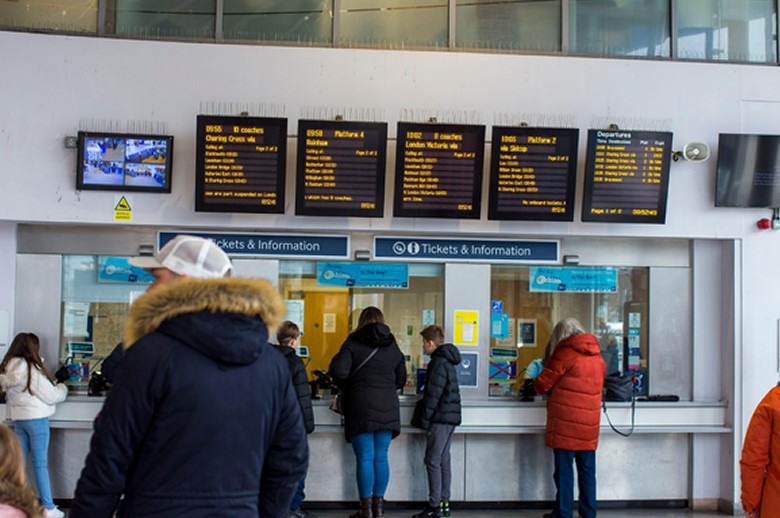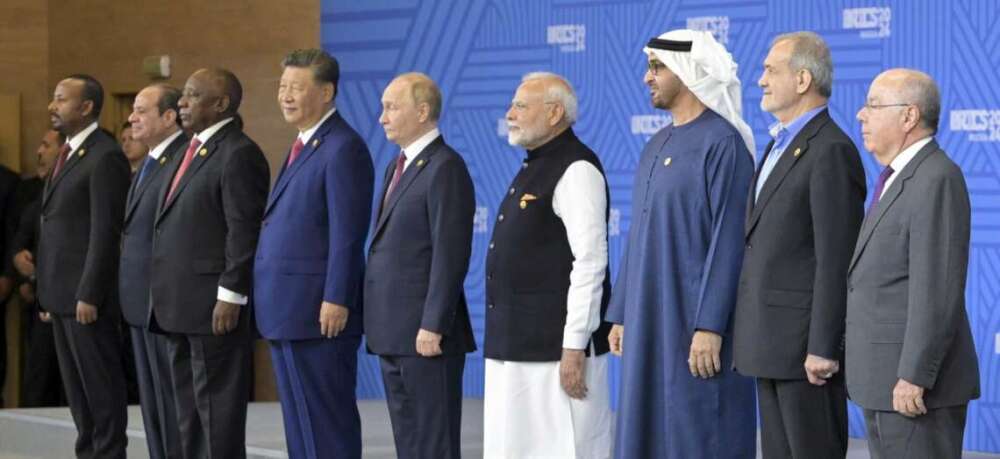RMT general secretary Mick Lynch said members at infrastructure operator Network Rail would walk out between 6pm on Christmas Eve until 6am on Dec 27…reports Asian Lite News
The industrial dispute gripping the UK’s railways deepened on Monday after the RMT union announced new strike action over Christmas and urged its members to reject a new industry pay offer.
RMT general secretary Mick Lynch said members at infrastructure operator Network Rail would walk out between 6pm on Christmas Eve until 6am on December 27.
Lynch said he had called the new strikes following a “poor” offer on pay and changes to working practices from Network Rail.
Although trains do not run on Christmas Day and services on Boxing Day are significantly reduced, the walkout could affect plans by the infrastructure operator to carry out the regular engineering works it schedules for the festive season every year.
In response, Network Rail said the RMT was treating the public as “pawns” in a dispute with the government.
“They are playing fast and loose with people’s Christmas plans and the new strike dates announced deliberately target vital engineering work designed to improve the railway,” said Tim Shoveller, Network Rail’s chief negotiator.
Transport secretary Mark Harper said: “[Our] rail network now faces more harmful disruption rather than helpful discussion.”
Network Rail has offered a 5 per cent pay rise this year and 4 per cent in 2022, and a guarantee of no compulsory job losses until January 2025, but is also demanding significant changes to working practices in return.
The RMT said it would put the pay offer to its members in a ballot closing on December 12, but the union called on members to reject what Lynch called an “extremely detrimental” deal.
“It is very poor in relation to the pay elements and our members simply aren’t in a position . . . to accept the changes the companies have put on the table,” he said.
The new strike action comes on top of four 48-hour strikes across Network Rail and 14 train operating companies previously announced by the RMT and the smaller TSSA union. The first strike is due to start on December 13 with further action set for December 16-17, January 3-4 and January 6-7.
The TSSA took a different approach as it put a similar deal to members, and said it would call off planned strikes at Network Rail. “This offer is the best we can achieve through negotiation,” said Luke Chester, TSSA organising director.
RMT members began their industrial action on the rail network in June, but hundreds of thousands of workers across the public and private sector are now following suit. Nurses, postal workers and university lecturers are set to strike in the run-up to Christmas; teachers and junior doctors are being balloted on industrial action; and ambulance workers are poised to announce dates for walkouts.
The RMT and TSSA also held last-ditch talks with train operating companies on Monday in a separate dispute over pay and conditions but failed to reach an agreement. Both unions, which had rejected a pay offer over the weekend, said it would go ahead with a series of strikes, which will take place on the same dates as the RMT’s original four strikes in December and January.
The offer by the train operators included a 4 per cent backdated pay rise for each of 2021 and 2022 as well as well as guarantees on no compulsory redundancies until April 2024.
But both the RMT and TSSA said the offers were tied to unacceptable changes to the running of the railways, including the mass closure of ticket offices and a widespread move to “driver-only operation” — where drivers instead of guards operate the doors on all carriages.
Union executives said these proposed changes to conductors’ responsibilities were particularly incendiary and had been included at the last moment.
While driver-operated doors are already in place across 45 per cent of the rail network, unions have historically fought fiercely against the changes, which were at the heart of a damaging year-long battle with Southern Rail in 2016 and 2017.
Ministers and the rail industry argue that they need to bring in far-reaching changes to working practices to help fill a financial black hole caused by the Covid-19 pandemic and a shift to remote working.
The government spent £13.3bn to support the railways in the year to March 2022, figures released last week show.
ALSO READ-More rail strikes to disrupt travel in Dec and Jan














